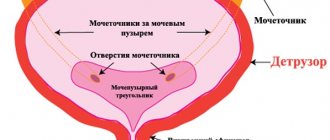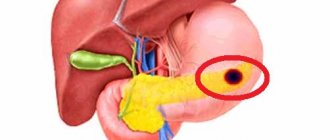Types of infertility
There are three forms of infertility:
- feminine;
- masculine;
- combined.
Female infertility has three subsections: uterine, endocrine, cervical.
Combined type infertility is characterized by immunological incompatibility of both partners. In this case, both partners can be absolutely healthy. The thing is that the female body produces antibodies that begin to destroy sperm. Fertilization itself in this case can occur, but in this case, the female body will perceive the embryo as something foreign and will try to eliminate it. Carrying a pregnancy to term becomes impossible, and with any attempts, partners begin to experience miscarriage.
Diagnostics
Timely and competent diagnosis is extremely important.
If attempts to conceive within a year are unsuccessful, you should consult a gynecologist. Having found out the medical history and correlating it with objective data (height, weight, etc.), the doctor can already at this stage identify some anomalies in the structure of the genitals.
To determine the nature of the disorders that interfere with getting pregnant, the following tests and tests are prescribed:
- enzyme-linked immunosorbent test (ELISA), which indicates the absence or presence of specific antibodies or infections;
- blood testing using the PCR (polymerase chain reaction) method - it can be used to detect pathogenic microorganisms;
- taking venous blood to determine the amount of total testosterone, estradiol and cortisol (in the case of the first two, blood serum is tested, while plasma is needed for cortisol). The same applies to thyroid hormones. Results are issued the very next day after delivery;
- scraping of cervical mucus, which, along with analysis of data on basal temperature, characterizes the course of the menocycle;
- colpocytology. This is nothing more than a vaginal smear. Cells obtained in this way during laboratory processing make it possible to clarify the situation with hormonal balance.
Did you know? Breast milk contains beta-endorphin, which gives the baby a long-lasting feeling of calm.
Having received the transcripts of the test results, they are shown to the same gynecologist. It often happens that this data is not enough.
Then hardware diagnostic methods come into play:
- Ultrasound of the pelvic area;
- hysterosalpingography - x-ray of the uterus and tubes using a contrast agent;
- its ultrasonic analogue is UZGSS. The condition of the uterine cavity and tubes is clarified using echography;
- laparoscopy. This is the introduction of special optical equipment through a hole in the abdominal wall (no more than 7 mm). The procedure usually completes the diagnostic course.
Situations vary. If the patient’s health status raises doubts among the gynecologist, an endocrinologist, ophthalmologist, and even a geneticist are involved in the examination.
Let's not forget about the male factor. To make sure that the difficulties are observed specifically in the female part, the partner will also have to undergo a series of examinations - ultrasound of the scrotal organs, spermogram, assessment of androgynous status.
Find out whether a woman can become pregnant if a man has a diagnosis such as azoospermia, oligospermia, teratozoospermia, asthenozoospermia.
Having found out that their data is normal, all attention is turned to the woman: the gynecologist prescribes treatment.
Degrees of infertility
In addition, infertility is characterized by two types: 1st degree infertility and 2nd degree infertility.
- The diagnosis of 1st degree infertility is a situation when a couple is planning a child for the first time, and their attempts for one year are not crowned with success.
- The second degree of infertility is a different situation when a man or woman has had children, or they have had successful attempts to conceive
- Infertility has first and second degrees. First degree infertility is characterized by the inability to conceive a child even once throughout life.
- Second degree infertility can also occur in both sexes and can either mean that the partner has ever been able to become pregnant or the man has ever been able to conceive a child. If later this ability is unexpectedly lost, then this is infertility, which has a second degree of severity.
Advice for spouses
In order for the long-awaited pregnancy to occur in the near future, in addition to the treatment prescribed by your doctor, follow our advice:
- Have more active sex a few days before ovulation, during the ovulation period. The frequency of sexual intercourse should be 3-4 times a week.
- The optimal position for conceiving a child is the “doggy position”, when the woman takes a position on her stomach, resting her elbows on the floor, and the man is behind him on his knees. This position increases the chances of getting pregnant by 30%.
- If the vaginal environment is acidic, preliminary douching with a soda solution will help. Before sexual intercourse, neutralize the vaginal environment.
- During sex, don't think about problems. Relax and have fun. The psychological factor plays a huge role in the process of conception.
- At the end of sexual intercourse, it is better for a woman to remain in a supine position for some time. Place a pillow under your thighs and elevate your legs - this will speed up the movement of sperm.
Don't get hung up on the problem, don't think about it constantly. Desperation will not help you get pregnant. Just try to move on and enjoy every moment. And do not forget the recommendations of the attending physician so that primary infertility does not develop into a complicated form. If everything goes well, you will soon forget about infertility and remember this diagnosis as a bad dream.
Degrees of infertility in women
Possible causes of 1st degree infertility:
- deviations from the norm in ovulation;
- deviations in the development of the ovaries or their complete absence;
- various diseases in the genital area.
As a rule, the causes of female infertility can be easily determined in order to accurately determine the source of the problem and begin treatment immediately. The main thing is to immediately contact a specialist if you suspect you have this disease.
Classification, reasons
First degree infertility is said to exist if a woman has never been pregnant. It is also known as “primary sterility”. In this case, infertility can be absolute, when it is impossible to conceive a child naturally, and relative, when, having eliminated the cause, pregnancy is possible.
The following can lead to the disease:
- congenital anomalies in the structure of the reproductive organs, making pregnancy impossible. This is an irregular shape, size, disproportion, unusual location, developmental delay. For example, bicornuate, double, saddle-shaped uterus, absence or fusion of the vagina (aplasia and atresia), stenosis, hypo- or hyperplasia;
- unclear genesis of infertility (idiopathic), when a woman and her partner are reproductively healthy, but it cannot be established why conception does not occur;
- ovarian dysfunction (30%), impaired production of gonadosteroids;
- anovulation;
- obstruction of the oviducts (fallopian tubes), their absence, sterilization (ligation);
- endometriosis, adhesions;
- menstrual dysfunction, amenorrhea;
- combined form of first degree infertility, when 2-3 pathological criteria are present.
The disease can be provoked by inflammatory processes of the genitourinary system, autoimmune diseases, obesity, stress, radiation, bad habits, injuries to the reproductive organs, cancer, and incompatibility of spouses.
Degrees of infertility in men
Causes of first degree infertility:
- various pathologies in the structure or condition of the genital organs;
- various injuries in the genital area;
- hereditary problems;
- disruption of internal organs or malfunctions in the body’s immune system.
In turn, the first degree of male infertility is divided into:
- obstructive, which is characterized by problems with normal patency in the vas deferens;
- secretory – represents hormonal disorders of the body and, in connection with this, poor sperm production;
- immunological – characterized by the presence of antibodies that begin to form on the surface of sperm. Such sperm do not participate in fertilization.
Also, infertility can develop in men due to the negative influence of the external environment, unhealthy lifestyle, for example, heavy smoking, drinking large quantities of alcohol, or drugs.
Male infertility, as a rule, can be cured in almost any case of severity. It is important not to neglect a full examination, because without it the exact cause will not be able to be established.
Prevention of female primary infertility
To prevent primary infertility:
- visit your gynecologist regularly;
- follow a healthy lifestyle and rules of intimate hygiene;
- avoid hypothermia;
- Protect yourself from sexually transmitted infections and venereal diseases.
To be able to plan a pregnancy, you need to take care of women’s health from girlhood.
To make an appointment or get advice, call the 24-hour number
+7
or fill out the form
2nd degree infertility in men and women
Infertility of the second degree in frequent cases represents disturbances in the functioning of hormones. Also, the cause of 2nd degree infertility can be various inflammatory diseases and the consequences of improper termination of pregnancy. This process generally needs to be approached very carefully. And if you decide to terminate your current pregnancy, choose a good specialist who will perform this procedure for you efficiently.
Also, among the common causes of 1st degree infertility are:
- uterine fibroids, pathologies in the structure of the ovaries, including cysts;
- ectopic pregnancy.
The causes of second degree infertility in men are almost similar to first degree infertility. This is first of all:
- various injuries and serious diseases of the body, hormonal disorders;
- negative effects from chemotherapy;
- diabetes.
Causes of infertility
Both congenital and acquired causes lead to difficulties in procreation. Congenital diseases include: disruption of the structure and functioning of the organs of the reproductive system and gonads, for example, bicornuate uterus, testicular cryptorchidism. Acquired are diseases or disorders that have arisen during life. They can be temporary or permanent, treatable or not. In medical practice, there are combinations of congenital and acquired causes of infertility in one patient.
Let's look at the main factors that cause first-degree infertility in women:
- ovulation disorders. In the body of a healthy woman, once a month an egg is released from the ovary into the fallopian tube - ovulation. If during this period the female reproductive cell is fertilized by a sperm, pregnancy will occur. But under the influence of hormonal disorders or some diseases, for example, polycystic ovary syndrome, ovulation may not occur, or it may not occur in every cycle.
- Obstruction of the fallopian tubes. The uterus and ovaries are connected by the fallopian (fallopian) tubes. During ovulation, an egg is released into them, and here it can be fertilized. Due to infectious diseases, such as scarlet fever in childhood or STDs, the mucous membrane of the tubes sticks together and can even grow together, creating obstacles for the penetration of sperm to the egg.
- Endometriosis is the growth of the uterine mucosa beyond its boundaries. Often found in young women. Leads to changes in the structure of the inner layer of the uterus, changes in its size, gradually leading to the impossibility of implantation of the fertilized egg.
- Stress, poor lifestyle. Under the influence of excitement and anxiety, the adrenal glands produce large amounts of adrenaline, which keeps the body in tension. At this time, the body can, as it were, “turn off” the reproductive function.
- Altered acid-base balance of the vagina or cervical mucus. Normally, the pH of the vagina is slightly acidic. This is a natural filter that the strongest sperm can pass through. But if the balance of the vagina and cervical (cervical) mucus is acidic, male reproductive cells die before reaching the uterus. The reason is dysbiosis after illness, taking antibiotics or antifungal drugs, as well as chronic infections, insufficiency of the endocrine glands.
- Polycystic ovary syndrome. Due to insufficiency of FSH (follicle-stimulating hormone), the egg does not fully develop and release from the follicle into the fallopian tube. Ovulation does not occur, and the unruptured follicle turns into a cyst filled with fluid. The structure of the ovaries undergoes changes, causing infertility, as well as facial hair and menstrual irregularities.
- Disturbances in the functioning of the endocrine system. The functioning of the reproductive system is influenced by: the hypothalamus, pituitary gland, ovaries, as well as the thyroid gland and adrenal glands. Diseases or malfunctions in the functioning of one of these glands can cause infertility for endocrinological reasons.
- Immunological factor. The body of a woman with this feature contains antibodies that kill sperm or her own eggs. This kind of allergic reaction can occur to the sperm of a specific sexual partner, or to the cells of any man. This reason is quite rare.
Treatment of female infertility 1st degree
When infertility is 1st degree, treatment begins with identifying the causes. Usually it does this quite quickly. After this, the attending physician prescribes a course of treatment to get rid of all barriers to conception.
How to treat 1st degree infertility:
- elimination of foci of inflammation in the woman’s genital organs;
- stabilization of the menstrual cycle;
- restoration of ovarian function;
- treatment of thyroid function;
- physiotherapy aimed at eliminating external defects that prevent a woman from becoming pregnant.
Currently, there are a huge number of ways to treat female infertility. If you correctly diagnose the cause and begin treatment immediately, in almost one hundred percent of cases you can completely get rid of the problem.
Therefore, you should never despair if you have been diagnosed with this. You just need to strictly follow all the specialist’s instructions, undergo a full course of examination and at the end of treatment, the result will definitely be positive.
Combined infertility – what is it?
Married couples often face the problem of conceiving a child not only in Russia, but also in other countries of the world.
Today, there are many methods by which a woman can become pregnant, carry a child and give birth to it, and these methods are improved every year. Of course, not so often, but there are situations when both spouses become the culprits for the impossibility of conceiving, then we can talk about a diagnosis of combined infertility. What kind of pathology this is and how not to get rid of it will be known after the examination.
Treatment of male infertility 1st degree
Treatment of infertility in men also begins with identifying the exact cause. After an accurate diagnosis, the doctor prescribes one of the methods to eliminate the problem:
- this may be a minor operation to eliminate defects in the genitals;
- changing your lifestyle, switching to a healthy diet and giving up various bad habits;
- treatment of an infectious disease by taking antibiotics;
- correcting hormonal levels and bringing the levels of all hormones into order;
- treatment of insufficient seminal fluid or raising its quality level.
If the doctor has diagnosed a severe form of male infertility, there is absolutely no need to despair and lose hope. Modern medicine has been moving forward for a long time, each time inventing new drugs for the treatment of infertility and improving existing ones.
Most doctors, scientists and specialists are absolutely confident that at the moment any form of infertility, regardless of its severity, is treatable. The main thing is not to let the situation get worse and start treatment as early as possible, immediately after the first symptoms appear.
Photo: Infertility treatment
Signs of infertility
Female infertility is diagnosed in cases where, after a year of regular sex with a man who does not have diseases of the genitourinary system, a woman fails to become pregnant. In addition, signs indicating the development of pathology are:
- absence of menstruation;
- disruption of the ovulation process (irregular menstruation);
- changes in hair growth (hirsutism, poor hair growth in the pubic area and armpits, vertical pubic hair growth);
- increased oily skin, persistent acne;
- masculine body structure, underdeveloped mammary glands;
- a history of several spontaneous abortions;
- sudden weight loss or obesity;
- detection of hyperprolactinemia syndrome.
Symptoms of male infertility are:
- inability to impregnate a healthy woman of fertile age within a year of active sexual intercourse without the use of contraceptives;
- visible pathologies of the development and structure of the organs of the genitourinary system;
- absence of sperm at the end of sexual intercourse, or insufficient quantity.
It is important to understand that identifying such signs is not a sufficient basis for making an independent diagnosis. Qualified diagnosis of infertility can only be entrusted to experienced specialists.
Treatment of 2nd degree infertility
Second degree infertility is difficult to treat. The recovery process can last several years and ends successfully if the man and woman follow all the doctor’s instructions.
Treatment measures begin with diagnosis and identification of the causes that provoked the disease. Diagnostic studies also include: taking an anamnesis, studying hormonal levels, sperm motility, patency of the fallopian tubes, etc.
Basically, antibacterial agents, antiviral drugs, and immunostimulants are prescribed. Comprehensive treatment of concomitant chronic diseases and acute inflammatory processes is carried out.
Treatment
Depending on the diagnosis, a specific course of treatment may be prescribed.
- In case of hormonal imbalances, medications are prescribed to correct hormone levels and restore them to normal.
- For chronic diseases of the genitourinary tract, procedures and medications are prescribed that will eliminate the problem. The duration of treatment depends on the degree of development of the chronic form of the disease.
- For STDs, an intensive course of drugs and procedures is prescribed that will cure the disease in a short period of time.
- In case of injury or problems with reproductive function, surgery is prescribed to correct the problem.
- In the absence of ovulation, its stimulation is prescribed, which will provoke the release of several mature eggs for further conception.
Infertility of unknown origin
Infertility that is diagnosed in the absence of a clear cause is called idiopathic. This form of infertility is characterized by the fact that a comprehensive examination of both men and women does not establish a clear cause of infertility. The diagnosis of infertility is established when all the research results obtained do not go beyond the reference values.
A doctor can make a diagnosis of infertility of unknown origin based on the following data:
- From the female body: Every month ovulation occurs, which is determined by special tests and ultrasound of the pelvic organs;
- There is no hormonal imbalance;
- The fallopian tubes are patent;
- Endometriosis is not diagnosed;
- There is no pathology of the uterus;
- Positive postcoital test;
- Antisperm antibodies are not formed in the blood serum.
- Normal sperm count;
Normally, for fertilization to occur and pregnancy to occur, a large number of events must occur in a sequential order. Therefore, to give birth to a healthy child, it is necessary to establish the cause of infertility in advance. However, the diagnosis of infertility in modern conditions is not a death sentence, since if a natural pregnancy does not occur, an infertile couple can use the services of assisted reproductive technologies. A full range of such services can be obtained at the IVF Center clinic in Volgograd.











